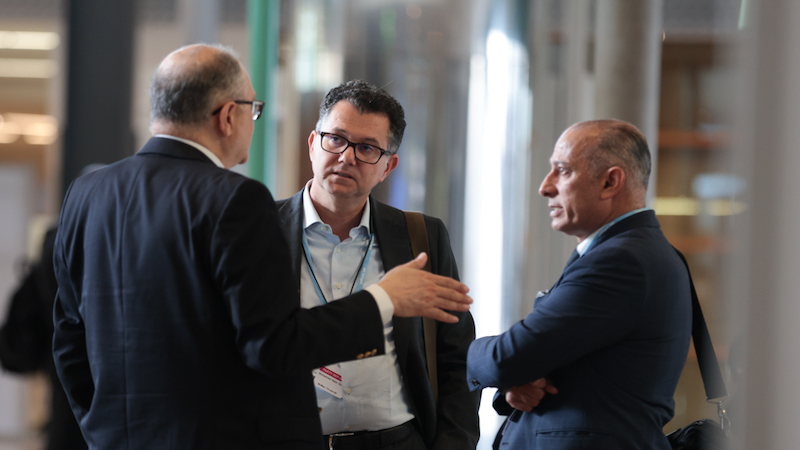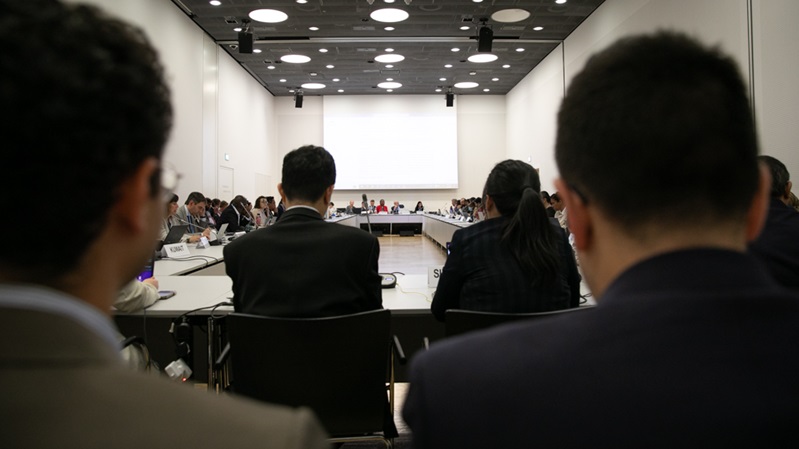Countries failed to make progress on a post-2025 climate finance goal in Bonn, with negotiators from developing and developed countries blaming each other in fiery exchanges at mid-year UN talks.
As discussions wrapped up on Tuesday, representatives of countries on both sides expressed disappointment with the process that is intended to result in an agreement on a new collective quantified goal (NCQG) at COP29 in Baku in November.
They will leave the German city with a 35-page informal “input paper” stuffed with wildly divergent views and repeatedly described as “unbalanced” by negotiators during the final session of the talks.
“It is time we get down to serious business,” said a negotiator from Barbados, pleading with colleagues to accelerate discussions before “more and more SIDS [small island developing states] and LDCs [least-developed countries] disappear from this gathering because we disappear from this planet”.
Show us the money
For most developing countries, the sticking point is the lack of negotiations on the size of the new goal – known as the “quantum” in technical language. Governments have already agreed that the new target should be set “from a floor of $100 billion per year” – the existing commitment – and should take into account “the needs and priorities of developing countries”.
Developing countries suggest rich nations tax arms, fashion and tech firms for climate
The Arab and the African groups landed their proposals for a new dollar amount on the table in Bonn – between $1.1 trillion and $1.3 trillion a year for the five years from 2025. Meanwhile, they accused rich states of failing to do the same and refusing to talk about numbers.
“We haven’t heard anything from them on their vision for the quantum,” said Egypt’s negotiator. “Every time there’s been [one] excuse or another why we couldn’t discuss quantum,” reiterated Saudi Arabia’s delegate.

Egypt’s negotiator Mohamed Nasr (middle) speaking with other delegates in Bonn. Photo: IISD/ENB – Kiara Worth
China echoed the same sentiment, but went further in its tirade against some developed countries. “We have been dealing with [a] few insincere and self-serving nations that have no intention of honoring international treaties,” the country’s negotiator said, referring to the 2015 Paris Agreement.
“We have no intention to make your number look good or be part of your responsibility as we are doing all we can to save the world,” he added, hinting at rich countries’ long-standing attempts to broaden the list of finance contributors to developing countries that are wealthier and more polluting.
‘A long way to go’
Developed countries accused their counterparts of entrenching their established positions instead of looking for areas of common ground.
Australia’s representative said the current document – which is not a negotiating text – shows “how much we disagree”. She added that there won’t be an agreement in Baku “if we engage in a game of striking out each other’s texts […] or a tug-of war”.
She expressed her government’s view that a numerical dollar target is “the star on the top of the Christmas tree” and should only be decided once the structure of the goal has been settled.
The UK’s negotiator noted that “we have a long way to go”, as “we are not in a process that will help us get to a final text”.
A delegate from the United States called for a “step change” in the process. “I feel most of what we’ve been doing is repeating views and not going into details on what folks mean,” he added.
No shortage of public money to pay for a just energy transition
Following the comments from developed nations, Saudi Arabia’s negotiator took to the floor again for the Arab Group. “I have to defend members of my group,” he said. “We are being gas-lit”.
It is now be up to the co-chairs of the talks to prepare a new informal document laying out a path forward based on the divergent views. The new paper will be sent to governments ahead of the next round of talks, which are yet to be scheduled.
“We encourage you to reach out to others using the inter-sessional period [between meetings] to discuss areas where you see fertile common ground,” said co-chair Zaheer Fakir in closing remarks. “Up until now we have not seen concrete efforts to reach out to your partners.”
(Reporting by Matteo Civillini and Joe Lo; editing by Megan Rowling)
